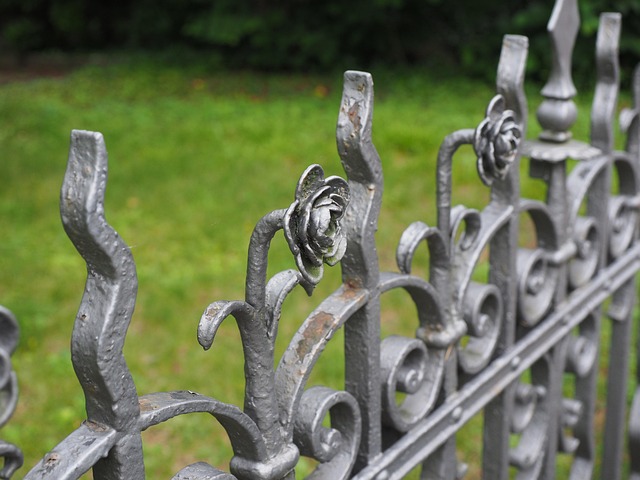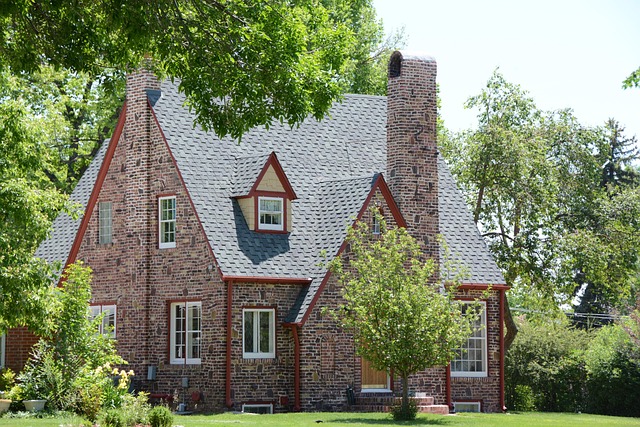TaxGaga.com
Business & Finances. Death & TaxesCan Installing a Fence in Katy, TX Save You Money at Tax Time?
When most Katy homeowners think about installing a fence, they picture privacy, security, and a boost in curb appeal. But there is another angle to consider—taxes. Many property improvements can affect your tax situation in ways that are not always obvious. The question is: does putting up a new fence in Katy, TX help at tax time? The answer depends on whether the project is classified as a home repair or a home improvement, how it impacts your property value, and whether you use your property for personal or business purposes. You can connect with fence builders in katy for more info.

Fence Installation as a Home Improvement
The Internal Revenue Service (IRS) makes an important distinction between repairs and improvements. Repairs are fixes that keep your home in working condition but do not significantly increase its value. Improvements, on the other hand, add to the home’s value, extend its life, or adapt it to new uses.
A new fence usually falls into the improvement category. Installing a fence adds privacy, security, and aesthetic value to a property. In a growing community like Katy, TX, a fence can make a home more appealing to buyers, which often translates into higher resale value. That means your fence is not a deductible expense in the year you pay for it, but it may help you later when you sell your home.
How a Fence Affects Capital Gains
When you eventually sell your home, you may owe capital gains tax if the sale price is higher than what you originally paid for the property. However, the IRS allows homeowners to add the cost of improvements to their “cost basis.” Your cost basis is essentially what you have invested in the home. A higher basis means lower taxable gains.
For example, if you bought your Katy home for $250,000 and later sold it for $400,000, you might face tax on a $150,000 gain. But if you installed a $10,000 fence and other qualified improvements, you could add those costs to your basis. That raises the basis to $260,000, reducing your taxable gain to $140,000. While homeowners may also qualify for an exclusion of up to $250,000 (or $500,000 for married couples) on gains, improvements like a fence can still provide an additional cushion, especially in competitive markets where values are climbing.
Fence Repairs vs. Fence Replacement
Not every fence-related project qualifies as a home improvement. Fixing a broken post, replacing a few panels, or repainting an existing fence is generally considered a repair. Repairs are necessary to maintain your property but do not add long-term value. For tax purposes, repairs are not deductible for a primary residence. However, if you own a rental property in Katy, repairs may be deducted in the year they occur because they are considered ordinary business expenses.
On the other hand, replacing the entire fence or adding a new one where none existed counts as a capital improvement. The cost would then be added to your property’s basis and come into play when you eventually sell.
The Property Tax Question
Another way a fence can influence your finances is through property taxes. Fort Bend and Harris counties, which cover most of Katy, assess property taxes based on the appraised value of your home. A fence that increases curb appeal and security may slightly raise your home’s assessed value, which can increase property taxes. While this is not a direct tax deduction, it is worth considering when budgeting for your project. Local property appraisers may treat fences differently depending on the neighborhood, so the impact will vary.
Fences for Home Offices and Business Use
If you operate a business from your home in Katy, the rules shift again. The IRS allows deductions for certain expenses related to a home office, provided you use part of your property exclusively and regularly for business. If the fence installation is directly tied to maintaining security or privacy for that business space, part of the cost may be deductible. For example, a daycare run from your home that requires a fenced yard for safety could potentially count the fence as a legitimate business expense. Documentation and consultation with a tax professional are critical in such cases.
Fences on Rental Properties

For landlords in Katy, the tax treatment is more favorable. Both repairs and improvements can affect your tax liability. Repairs to a rental property’s fence are deductible in the year you make them. Improvements, like a full replacement, must be depreciated over time according to IRS schedules. While this requires some accounting work, it spreads the tax benefit across several years, lowering taxable rental income.
The Importance of Documentation
Regardless of how you use your property, one key step is documentation. Keep receipts, contracts, and records of the work done by your fence contractor. These records will be essential if you need to adjust your cost basis or claim deductions. Even photographs of the before-and-after condition of your property can support your case in the event of an IRS review.
Consulting a Professional
Tax rules can be complex, and their application depends on your specific situation. While a fence installation in Katy is almost always considered a home improvement, the tax impact differs for primary residences, rental properties, and business use. Before assuming you will save money at tax time, consult a licensed tax professional. They can evaluate whether your fence qualifies for a deduction, how it affects your basis, and what it means for your future property taxes.
Final Thoughts
Installing a fence in Katy, TX, may not deliver an immediate tax deduction, but it can improve your property value, strengthen your cost basis, and, in some cases, qualify as a business or rental property expense. Homeowners looking at long-term financial planning should view a fence as both a lifestyle investment and a tax-savvy improvement. While the upfront cost may be significant, the potential benefits—both in terms of home value and future tax savings—make it worth considering as part of your overall property strategy.